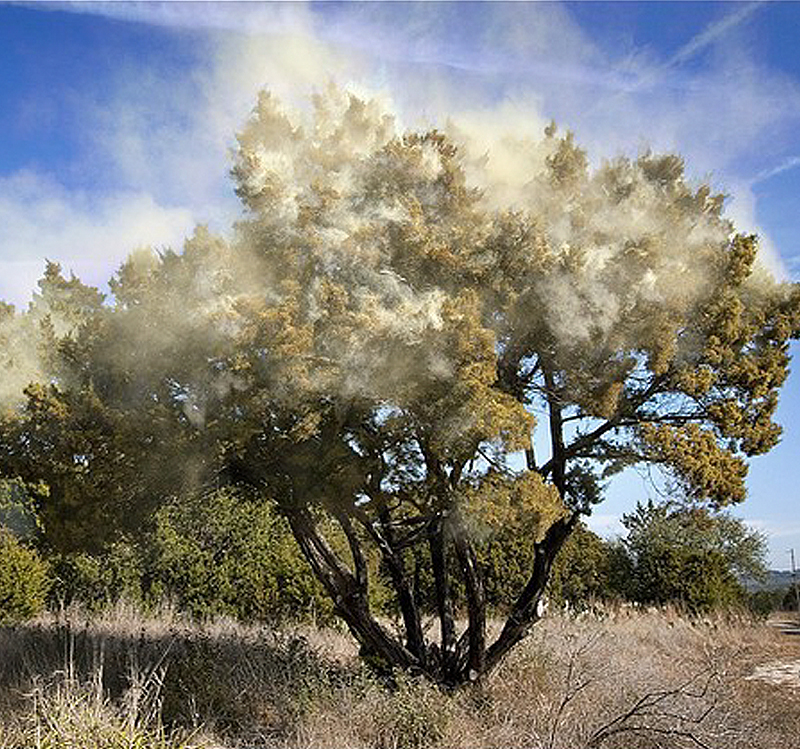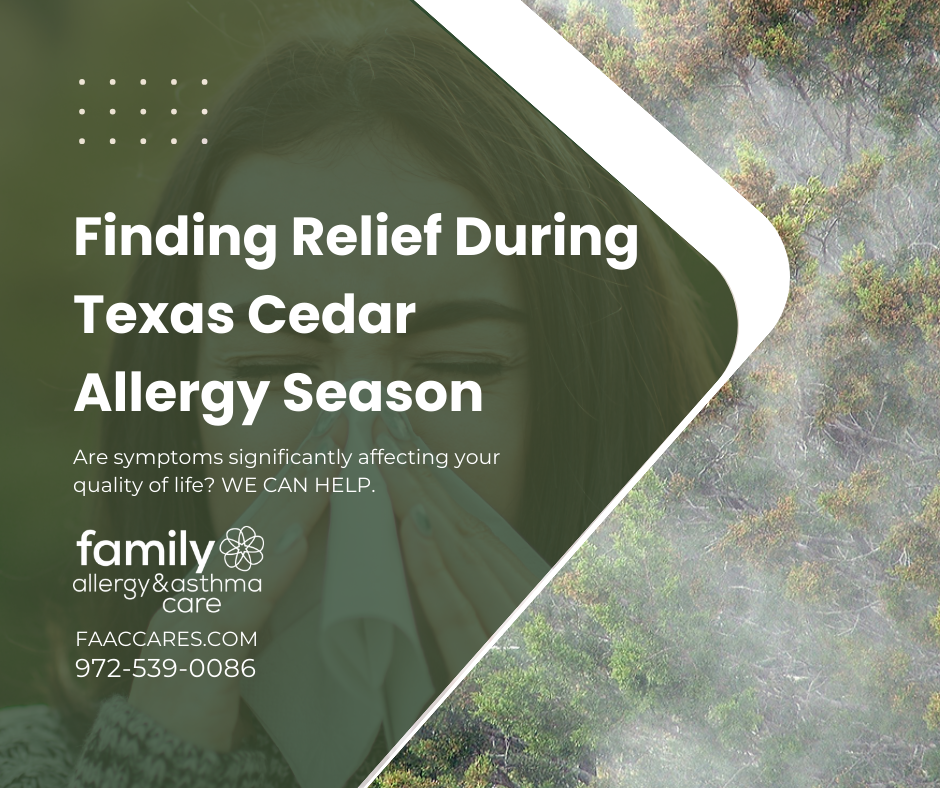
While these trees are primarily found in Central Texas and the Hill Country, their fine, wind-driven pollen spreads far and wide, making North Texas residents just as vulnerable.
Texas Cedar allergy season in North Texas typically runs from late December through February, peaking in January. Unlike other pollen seasons, which are often associated with spring or fall, mountain cedar releases its pollen in the winter. This seasonal shift can catch many allergy sufferers off guard, especially if they mistake their symptoms for a cold or flu.

The symptoms can be intense and sometimes mimic those of a respiratory infection. Common signs include:
- sneezing
- runny nose
- sore throat
- itchy watery eyes
- cough
If your symptoms are significantly affecting your quality of life, it may be time to see an allergist. Allergy testing can confirm if Texas Cedar pollen is your primary trigger, and our board-certified allergists can recommend long-term management strategies for relief, including immunotherapy.




